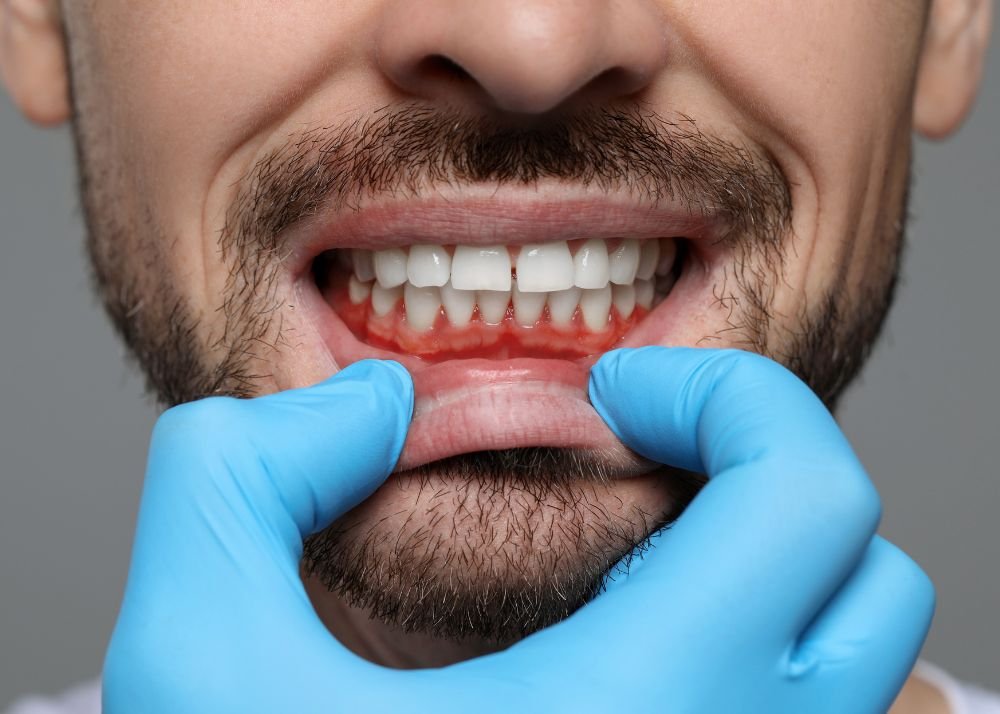Caring for your teeth and gums is a good first step toward better overall health. Poor oral hygiene has multiple potential health risks, including Alzheimer’s disease. If you are experiencing any kind of oral health issue, it is recommended that you consult a dentist in Maple Ridge and keep reading this article.
Key Takeaways:
- Maintaining good oral hygiene is an important part of taking care of one’s overall health.
- The brain’s ability to clear amyloid plaque may be impaired by gum disease, which may contribute to Alzheimer’s.
- Maintaining health requires dental services like checkups, cleanings, and gum disease treatments.
What Is Alzheimer’s Plaque
- Alzheimer’s disease is a neurodegenerative disorder that causes cognitive decline, memory loss, and behavioural changes.
- It is the leading cause of dementia worldwide.
- Among the symptoms of Alzheimer’s disease is the buildup of abnormal protein aggregates in brain tissue, such as tau tangles and beta-amyloid plaques.
- The accumulation of protein fragments between nerve cells is known as beta-amyloid plaques.
- In Alzheimer’s patients, these plaques disrupt cell communication and cause inflammation that leads to brain damage.
Common Gum Diseases
Gingivitis: This mild gum disease is caused by plaque buildup along the gumline due to poor oral hygiene.
Symptoms: Gums are red, swollen, and bleed easily when brushing or flossing.
Periodontitis: Untreated gingivitis can lead to periodontitis. Periodontitis causes gum inflammation and infection, which can permanently damage tooth bone and tissues.
Symptoms: Receding gums, pockets between teeth and gums, loose teeth, bad breath, and biting changes.
Gum recession: When gum tissue recedes, more of the tooth and roots are exposed. Periodontal disease, aggressive brushing, genetics, and hormonal changes can cause gum recession.
Symptoms: Teeth roots are exposed, sensitivity increases, and teeth appear longer.
Gum abscess: A bacterial infection can lead to the formation of abscesses, which are collections of pus.
Symptoms: Bacteria infect the space between the tooth and gum, causing swelling, pain, and a pimple-like bump over the gum.
The Link Between Gum Disease And Alzheimer
The Forsyth Institute found a link between gum disease and an Alzheimer’s disease marker called amyloid plaque.
The research titled, “Microglial cell response to experimental periodontal disease” examines how gum disease affects microglial cells in the brain. The study was published in the Journal of Neuroinflammation in 2023.
Remember: The brain’s microglial cells are in charge of protecting it from amyloid plaque.
The study found that gum disease overstimulates microglial cells, making them less effective at digesting amyloid plaque. Gum disease has the potential to alter brain cells that normally prevent the buildup of plaque that causes Alzheimer’s disease.
How It Works
- The researchers used mouse-specific oral bacteria to induce gum disease in lab mice and study its brain effects.
- They found that oral bacteria stimulated neuroinflammation in isolated microglial cells, changing how they handle amyloid plaque.
- Oral bacteria exposure caused overstimulation of microglial cells, impairing their ability to digest plaque.
- Gum disease opens wounds, letting bacteria into the bloodstream and brain.
- Bacteria can cross the blood or brain barrier, stimulating microglial cells and neuroinflammation.
What Does It Mean
- Targeting neurodegenerative diseases like Alzheimer’s may require understanding how oral bacteria cause neuroinflammation.
- Managing gum disease inflammation may help prevent Alzheimer’s.
- It is the first mouse-specific bacteria study to induce periodontal disease that brings researchers closer to replicating the human process.
Maintaining Healthy Gums
These preventative measures can help you avoid gum diseases:
- Keep your teeth and gums clean. Remove plaque and food particles from your teeth by flossing daily and brushing twice a day with fluoride toothpaste.
- Manage stress. The immune system becomes less effective in fighting off gum infections when people are under stress. Try some stress-relieving activities, such as yoga or meditation.
- Use proper dental tools. Pick a toothbrush with a soft bristle and switch it out every three to four months. Follow your dentist’s advice and use antimicrobial mouthwash.
- Make sure you are brushing correctly. Brush your teeth gently, circularly, and thoroughly, including the gumline. Too much pressure while brushing can lead to recession and irritation of the gums.
- Don’t neglect the tongue. Another cause of foul breath and gum disease is an accumulation of bacteria on the tongue. Be sure to clean your tongue regularly using a brush or a tongue scraper.
Gum Services You Can Get
| Gum Disease Prevention | Description |
| Professional Teeth Cleaning (Prophylaxis) | ● Removing plaque and tartar from teeth, especially in hard-to-reach areas. |
| Scaling and Root Planing (Deep Cleaning) | ● This method of cleaning is more thorough and aims to remove tartar and plaque that has settled below the gumline. |
| Periodontal Maintenance Therapy | ● More regular cleanings and checking on the gums to make sure they are healthy might be part of this. |
| Antimicrobial Treatments | ● Slow the development of gum disease by eliminating harmful bacteria from the gums.
● You can get them in the form of antibiotic mouth rinses or as a direct application to the gums. |
| Dietary Counseling | ● Dental experts can advise patients on how to maintain good oral hygiene and gum health through food and exercise. |
Pay Special Attention To Your Gums
More recent research has shown a link between gum disease and neurodegenerative disorders like Alzheimer’s, shedding light on the importance of good dental hygiene. As a result, this highlights the significance of dental hygiene in preserving general health.
Regular dental cleanings and gum treatments promote gum health, preventing oral disease and other health risks. The dental services provided by Westgate Dental Centre range from routine exams and cleanings to more advanced procedures like scaling and root planing. These services done by experienced dentists are necessary for addressing existing gum issues.
Frequently Asked Questions
How does a balanced diet affect dental hygiene?
- The health of your teeth and gums depends on getting enough of certain nutrients. These include vitamins, minerals, and the mineral calcium.
- Dairy, leafy greens, and nuts are calcium and phosphorus-rich foods that strengthen tooth enamel and improve dental health.
- Consuming a variety of fruits and vegetables provides vitamins and antioxidants that protect gums.
- Sugary and acidic foods and drinks can cause cavities and weaken tooth enamel, so you should limit them.
- Drinking enough water rinses food particles and bacteria from the mouth, promoting saliva production and preventing tooth decay and gum disease.
What is the recommended frequency of dental checkups for gum health?
Visits to the dentist should be scheduled at least once every six months. During these examinations, the dentist will look for signs of gum disease and other oral health issues.
What are the most common causes of gum disease?
- Poor oral hygiene. Plaque builds up when people do not brush and floss properly.
- Smoking. Gum disease is more likely in people who smoke.
- Hormonal changes. The gums might be more vulnerable during pregnancy or when hormone levels fluctuate.
- Diabetes. The immune system’s capacity to combat infections, such as gum disease, is compromised when blood sugar levels are high.
- Some drug prescriptions. It is possible for some medications to have an effect on oral health.
- Genetics. People may be more likely to develop gum disease if it runs in their family.
- A compromised immune system. An increased risk of gum disease is associated with immune-compromising conditions or treatments.
















